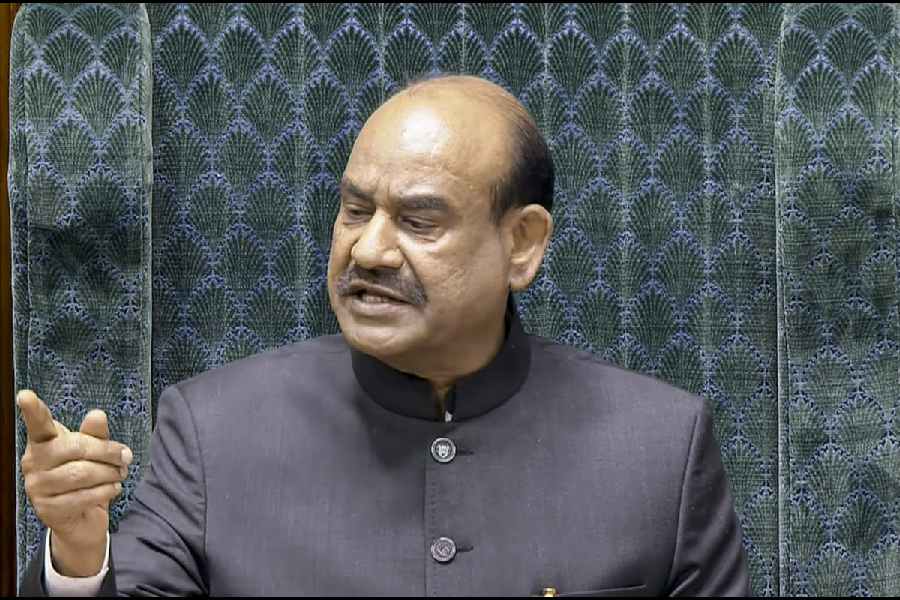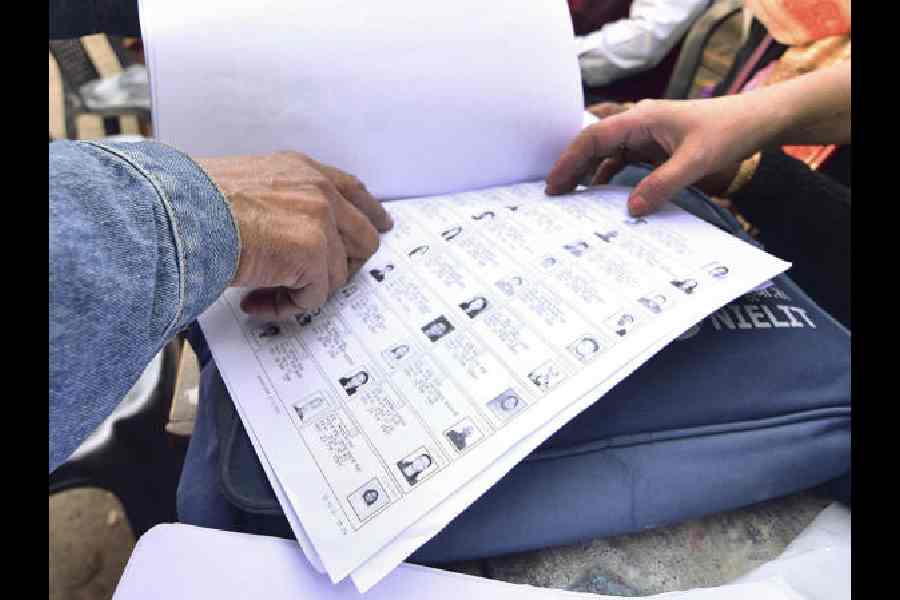 |
 |
| BREATHING FIRE: (Top) Raj Thackeray greets his supporters and (above) Mumbai erupts after his recent arrest |
It was barely a 500-square-foot flat, on the ground floor of Kadam Mansion in Dadar, the traditional Maharashtrian heartland in central Mumbai. The window sill in the room was lined with bottles of perfume, recalls a visitor who retains a vivid impression of his visit to the first home of Maharashtra Navnirman Sena (MNS) leader Raj Thackeray.
Thackeray, 41, now stays in Krishna Kunj, a tall building that he owns, a stone’s throw from his old home. As a child, he lived in a joint family that included his uncle Bal Thackeray. His uncle later moved to Bandra, but the ties remained strong.
Today, Raj Thackeray is physically near his old home, but miles away from the days when his uncle reigned. Blood ties have soured between the founder of the Shiv Sena and his nephew. And as recent developments in Maharashtra indicate, Raj is doing all he can to seize Thackeray’s baton.
The MNS — which Raj floated in 2006 after being sidelined in the Sena — is on the rampage. It grabbed headlines when it jumped to the support of sacked Jet Airways employees and then led a violent agitation against north Indians. Violence led to counter violence, Raj was arrested and walked out on bail to the cheers of his supporters.
The man who would be king seems to be warming up for the elections. And in the process, he hopes to upstage his uncle, in whose Bandra home, Matoshree, he spent hours after school at the Marathi-medium Balmohan Vidya Mandir School in Dadar. The ritual continued through his undergraduate days at the J.J. School of Art. The family was close — Raj’s music director father was the younger brother of Bal, then a cartoonist at Free Press Journal. The two siblings had married two sisters.
Those were the days when he was his uncle’s shadow — not his would-be successor. He moulded himself in the shape of the Sena patriarch. Like him, Raj was a cartoonist. “He is a good caricaturist,” says Shishir Shinde, MNS general secretary, who first met Raj in 1985 when the latter organised a rally for unemployed youth.
Always a good mimic, a determined Raj consciously imitated his uncle’s mannerisms and provocative oratory, believing that one day he would inherit his political legacy. That was before the nephew was sidelined for the favourite son, Uddhav, who now helms the Sena.
Raj’s dreams of heading the Sena were not without basis, for Uddhav was not known for his political ambition. “Raj was a favourite of Balasaheb, pampered and mischievous; Uddhav was quiet,” says Nationalist Congress Party MP and former Sena leader Chhagan Bhujbal. “When Uddhav took over, few thought he could manage such a big party and felt he would fail. No one expected him to be so successful. Raj is getting a lot of following but he has to build a party,” adds Maharashtra’s former deputy chief minister.
Raj, however, had made his mark in his Sena days. As the head of the Akhil Bharatiya Vidyarthi Sena, he won his uncle’s admiration for bringing singer Michael Jackson to Mumbai for a fund-raiser concert in 1996. He kept a check on fund collections in Sena branches, and encouraged junior members to speak frankly about their leaders.
His interest in politics surprised his old friend, realtor Nitin Sardesai, who first met him 20 years ago when Sardesai was in college. “Those days, he was not thinking of pursuing politics. He was more into music and arts. He was just the normal boy next door. But, yes, in any group he would naturally take control: he’s the boss,” says Sardesai, Raj’s partner in Matoshree Infrastructure, their real estate company.
Sena watchers who observed Raj’s rise in the party and subsequent marginalisation point out that he cut his political teeth on the twin mantras adopted by the Sena — emotive local planks and the use of violence as a means to an end — which continue to be the ideology that propels him.
The Sena, though, believes it has moved on. Sanjay Raut, MP, and former editor of Saamna, the Sena mouthpiece, says his party in its 40 years has learnt that violence is limiting. “There is none to equal us in throwing stones. MNS agitators are like kids in comparison, but we don’t want to stoop to their level. The Sena did not get success for 20 years in the civic election because of its violent tag,” he says.
His friends insist that the man whose tactics have frequently disrupted Mumbai and who a judge once likened to “a terrorist who spread fears,” is actually a connoisseur of the finer things of life. Krishna Kunj — where he lives with his wife, Sharmila, their two children and two Great Danes called James and Bond — has a home theatre, a huge library of books on art and history and music and a well stocked bar. “His favourite composers are Bach, Beethoven, Wagner, Mozart and R.D. Burman. He loves to drive and is very fond of animals. He has a sense of humour too,” says an MNS member.
His associates stress that Raj has been wronged. “People misunderstand him. Raj is not communal. He is like a volcano that erupts when Marathi sanskruti (culture) is insulted or Marathi takes a backseat in its home state,” asserts Rajiv Parulekar, MNS friend, political commentator and host of a breakfast show.
In an earlier interview to The Telegraph, Raj did not spell out clearly the MNS’s political ideology but stressed that to “solve the city’s problem you don’t need schisms.”
Raj’s invoking of the Marathi manoos — the Marathi common man — strikes a chord that for most people is evocative and undeniable, says Arjun Dangle, Dalit writer and member of the Republican Party of India. But the violent flashpoints in the wake of his arrest were limited. Dangle doubts that young Dalits will join the youth constituents the MNS is wooing.
But Raj’s aggressiveness has had some in the Sena clamouring for a hint of Bal Thackeray’s bite in Uddhav’s speeches. By nature, Uddhav is considered quieter. However, he got the thumbs up in 2007 when the Sena, which had lost several by-elections, got a majority with 83 seats in the Mumbai civic elections, despite Raj’s exit.
With Parliamentary elections round the corner, and assembly polls later in 2009, noisy hard-fisted strategies are likely to be seen in the state. For Raj to make his presence felt, emotive issues will be a cornerstone of his strategy.
A good orator who draws large crowds, Raj still has to find a way that will transform turnout to electoral triumph. But Shinde is far from worried. “He is the loudspeaker for the Marathi manoos,” says Shinde.
Whether Raj will finally win or lose the battle for their hearts, regional faultlines will no doubt reign.











